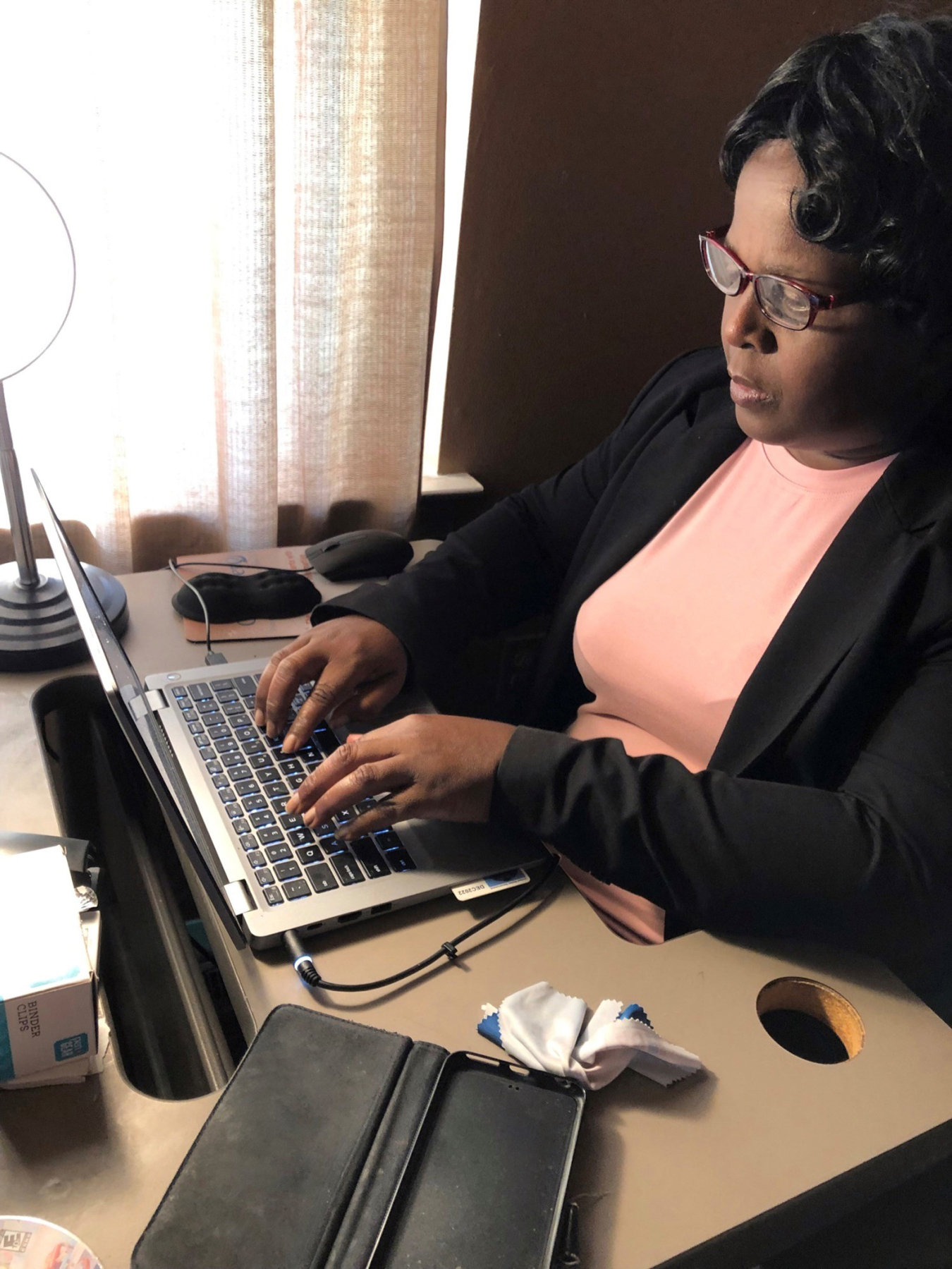LM’s Chequita Johnson on how operational continuity drives LM’s mission.
June 28, 2021
For those familiar with the Department of Energy (DOE) Office of Legacy Management’s (LM) post-closure responsibilities at former nuclear sites across the country, the image of scientists working in the field to gather data, conduct surveillance, and monitor sites is what immediately springs to mind.
But behind the scenes is LM Program Analyst Chequita Johnson, who specializes in support functions such as security, training, and workforce development, which are other dimensions of LM’s mission that are vitally important to the office’s overall success.
“LM is a unique place because of all the different opportunities and diverse people you get to work with. The dynamic nature of LM sites, along with shifting political winds, make the operational management mission critical,” Johnson said. “The support team plays an indispensable role in getting everything done. The processes and procedures we implement allow LM to function safely and seamlessly.”
Padraic Benson, a program analyst for LM, said he benefitted from Johnson’s in-depth understanding of the organization.
“Chequita’s depth of knowledge comes from being on the ground floor of LM operations at its inception in 2003,” Benson said. “As part of the first LM team ever assembled, she has had a front row seat to history.”
Johnson said LM’s work has its challenges, but the organization has continued to grow.
“We have had to navigate a lot of our own challenges, from adjusting to new leadership and various Presidential administrations, to keeping up with an evolving digital landscape,” Johnson said. “Even though our work isn’t always visible, it is a critical component of the organization.”
That work includes operational matters that run the gamut from practicing critical cyber security and emergency protocols to the creation of COVID-19 work policies that enabled the office to pivot to a fully remote environment.
“Chequita helps LM employees perform their day-to-day business, whether it involves getting training, arranging international travel, or planning for the continuity of operations in the event of a catastrophe,” Benson said. “Without the behind the scenes work of Chequita and her teammates, LM couldn’t effectively perform its mission of protecting human health and the environment.”
Johnson plays an integral role in keeping LM safe and secure. Some of her proudest accomplishments include putting several office security policies now in place across the organization. Johnson said writing official policies for a federal office demanded thorough research and meticulous writing skills.
“When it comes to security, I’ve become something of a subject matter expert,” she said. “But I never thought I’d be able to write policy. For me, that’s a big accomplishment.”
As she reflects on her career, Johnson marvels at how LM has grown and evolved. She said she has, too.
“I credit my peers and managers over the years for inspiring me to broaden my horizons. Throughout my tenure, the most effective leaders were those who engaged with employees, understood their goals, and furthered their professional development,” she said. “Such managerial support inspired me to go back to school and get my Masters of Science in Business Administration with a specialization in Homeland Security Management.”
Johnson said her love for learning has driven her to search for new opportunities to share LM’s mission and her team’s role within LM.
“I’m proud of the work we do to enable safe approaches to protecting human health and the environment,” she said. “My team’s role is more than just red tape. It is the blueprint for LM’s success.”

